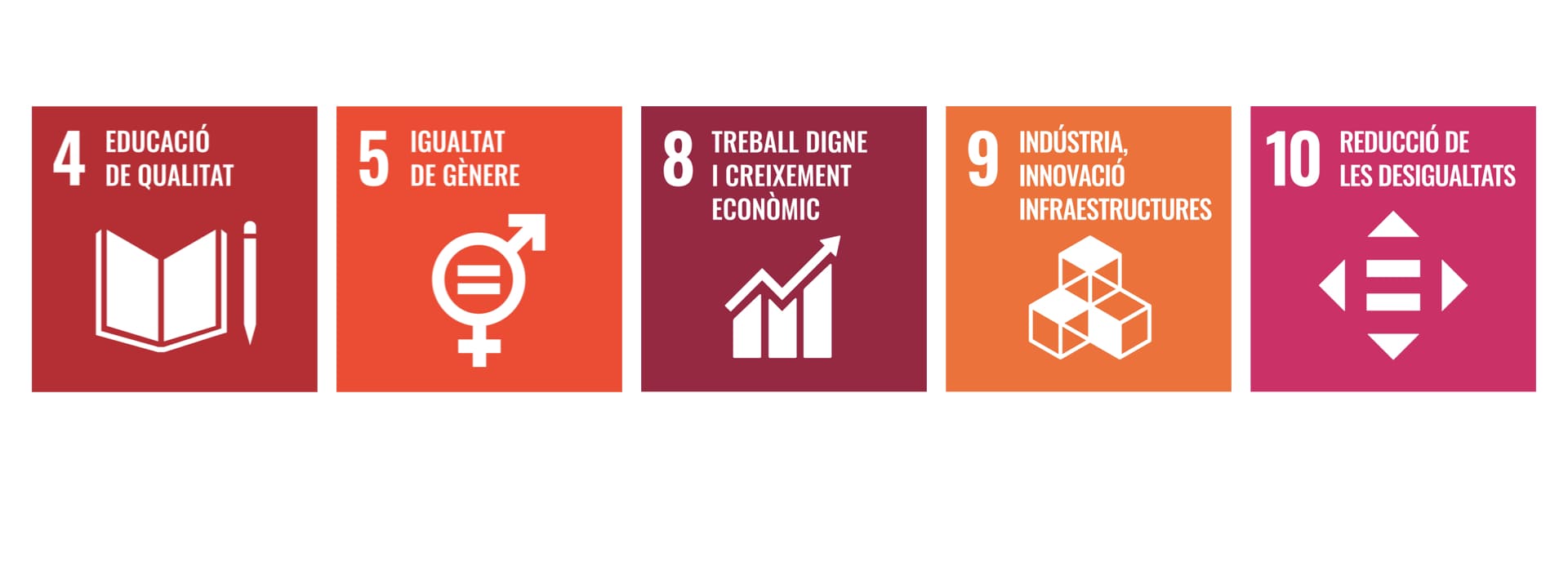The technological revolution has enabled the creation of many jobs, although the prevailing feeling is that it is destroying them. However, it is a creative destruction. The key to this technology-based job creation is education, according to the Director of the Technology Academic Area of the UPF Barcelona School of Management, Ana Freire.

Startups in Catalonia already provide more jobs than Seat. The presence of the Mobile World Congress has crystallised the technology and entrepreneurial sector in the region, especially in Barcelona. The technological revolution has enabled the creation of many jobs, although the prevailing feeling is that it is destroying them. However, it is a creative destruction. The key to this technology-based job creation is education, according to the Director of the Technology Academic Area of the UPF Barcelona School of Management, Ana Freire.
"Technology offers services that replace some jobs: virtual assistants or other innovative products may wipe out today's jobs, but if we think about it, they are probably ones that many people would not want to do", says the lecturer, an expert in Artificial Intelligence. "In the same way that no one today would consider farming without the help of a tractor or without tools, I'm sure that at the time the tractor destroyed jobs", she adds.
"We are lagging behind the technological vanguard. While in other countries they prepare young people in programming, here they have just eliminated them from the high school"
According to the expert, if we transfer this idea to today's jobs, the ones that will disappear will be those that are mechanical, routine and that do not need the intelligence and creativity of human being, which is what "we really need to dedicate ourselves to". Meanwhile, in Catalonia, unemployment stands at 10.2% and there are 400,000 unemployed workers, but, according to Adecco, 53% of Human Resources managers recognise that they have problems recruiting talent for their companies due to the lack of specialised personnel.
Technology training"We are lagging behind in the technological vanguard. While in other countries they prepare the population in programming as early as secondary education, here they have just eliminated it from the high school", warns Freire. The new Spanish education law –the eighth amendment since 1980–, the Organic Law for the Modification of the LOE (LOMLOE), does not include the subject of Information and Communication Technologies (ICT) in its wording, which has led several associations of computer engineers, teachers and students to launch a campaign for the government to reintroduce it.
One of the arguments put forward for its elimination is that young people do not want to study computer science. "But that's not true: every year, 9,000 students are left out of computer engineering because there are not enough places to cover the demand", she recalls. Last year, some 16,000 people chose this degree as their first option –40% did not get a place– while "other degrees offer many more places and have a very high unemployment rate", she adds. In this context, it is essential to align the demands of the business world with what is offered by universities, something that costs time and money.
"If the administration offers services that almost 50% of citizens cannot use before they are equipped with basic digital skills, we will be exacerbating social inequalities
In this regard, education is also the way for many people currently doing mechanical jobs not to be left out of the game. In the 2020 Digital Economy and Society Index (DESI), Spain is said to rank 11th among the 28 member states of the European Union (EU). At the same time, it ranks second in the EU in terms of digital public services, but is below the EU average in human capital indicators. Almost half of the Spanish population still lacks basic digital skills and 8% have never used the internet.
Fighting the digital divide is urgent"This will create a problem, a digital divide. If, before equipping the majority of citizens with basic digital skills, the public administration starts offering services that almost 50% cannot use, we will be exacerbating social inequalities", says Freire.
"What needs to be done to close the gap is education. Not only in primary school, but also in older age groups", she says. Even for retirees, "digitalisation means knowing how to use the bank app, buy online, access information, find a job online, download an app, etc.".
"Universities must align their education with the demands of the business world, adding technological subjects of a cross-cutting nature to all degree courses"
For the lecturer at the UPF Barcelona School of Management, it is critical "to train the workers of the future, not only at university level, but also in primary and secondary schools. Contrary to what is currently happening, technology subjects should not be eliminated", she believes.
With regard to universities, "we must align ourselves with the needs of companies and not only that, but also add cross-cutting technology subjects to other degree courses, as there will be more and more multidisciplinary projects that include technology", she points out.
Finally, Freire indicates that for professionals in other sectors, retraining and professional reconversion will be key: "Masters and postgraduate courses, but also professional training or intensive courses, are tools that should serve to avoid being left behind", he concludes.

